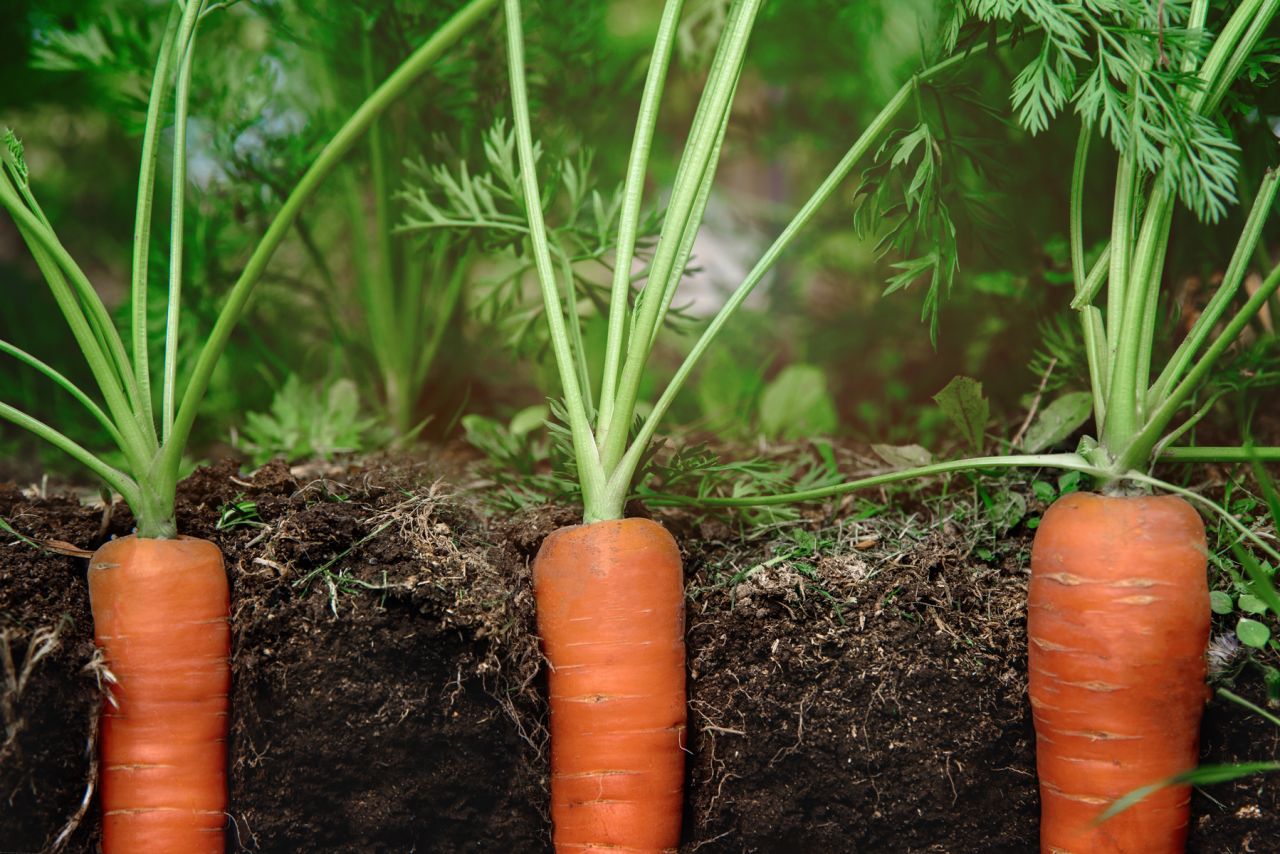Carrot Planting Basics
Start by preparing the site, tilling to a depth of 10 inches. Remove any rocks or clumps and enrich the soil with compost and sandy topsoil if needed. Sow seeds directly in the garden, as carrots dislike root disturbance. Plant 1/4 inch deep, spacing 2 to 3 inches apart in rows 1 foot apart.
Seed Sowing Tips
Distribute seeds evenly to avoid overcrowding. If you find this challenging, mix the seeds with fine sand for easier sowing. Keep the soil moist but not wet to aid germination. Carrots can take 14-21 days to sprout, so be patient!

Companion Planting and Succession Planting
Plant radishes with carrots to prevent soil crusting and track carrot seed locations. Harvest radishes once carrots start to grow. For a continuous harvest, sow carrot seeds every four weeks until mid-summer.
Container Gardening
Growing carrots in pots allows you to control the growing medium and avoid pests. Use pots at least 10 to 12 inches deep and wide. A mix of one part sand and one part potting mix works well. Sow seeds thinly, water well, and place in a sunny spot.
Care for Growing Carrots
Once seedlings appear, thin them to a couple of inches apart. Mulch gently to retain moisture, speed germination, and protect roots from the sun. When seedlings are an inch tall, thin them to stand 3 to 4 inches apart. Ensure carrots receive 1 inch of water per week and weed diligently. Fertilize 5 to 6 weeks after sowing with a low-nitrogen fertilizer.
Harvesting Carrots
Carrots are ready to harvest when they’re about as wide as your thumb. Smaller carrots often taste better. Harvest in stages for a staggered yield. In spring and early summer, harvest before temperatures rise too high. In fall, harvest after a frost for better flavor. If you leave carrots in the ground, they’ll flower and produce seeds the following year as they are biennials.


